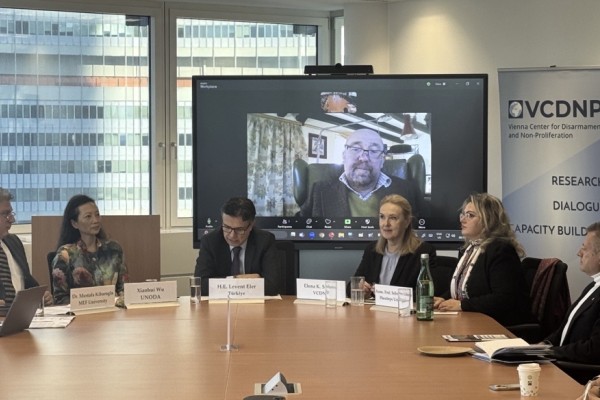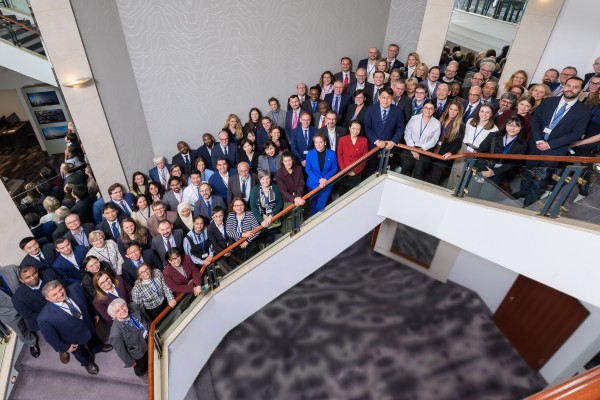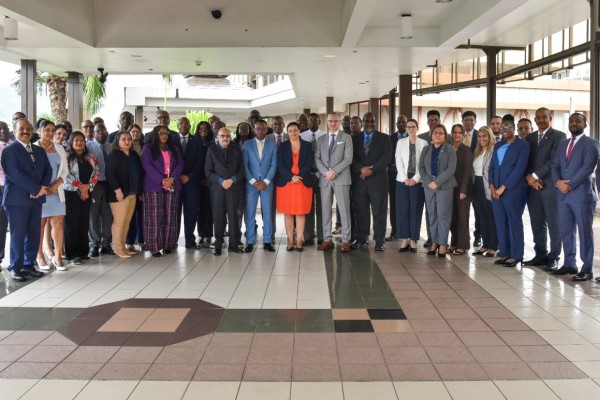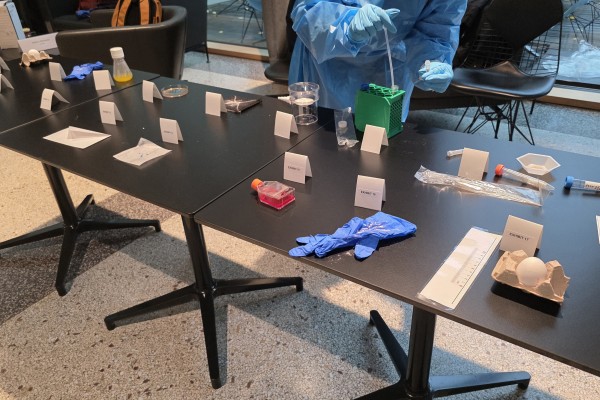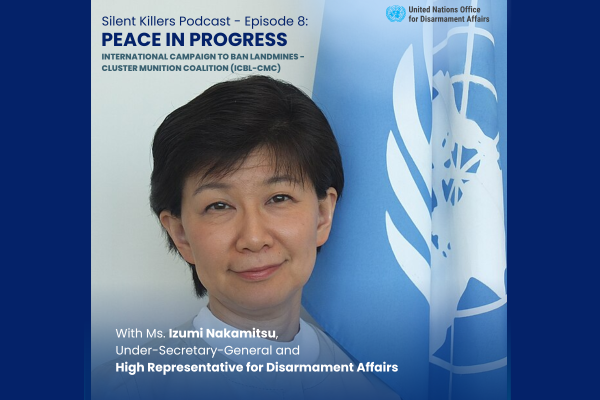On 17 September, the United Nations Regional Centre for Peace and Disarmament in Africa (UNREC) convened a virtual regional briefing on Security and Technology for African diplomats and experts. The objective was to prepare delegates, both in New York and in capitals, for the upcoming 80th session of the First Committee of the General Assembly scheduled for October in New York. The briefing, organized in collaboration with UNODA’s Science, Technology and International Security Unit (STU), unpacked the emerging international peace and security threats posed by artificial intelligence, drones, and cyberspace. African diplomats and regional experts reflected on global security and technology trends and discussed their implications for Africa’s regional disarmament agenda.
The virtual event gathered 56 African diplomats and experts including 20 women representing 32 countries namely Algeria, Angola, Benin, Burkina Faso, Burundi, Cameroon, Central African Republic, Côte d’Ivoire, Egypt, Ethiopia, Gabon, Gambia, Ghana, Guinea, Kenya, Liberia, Madagascar, Malawi, Mauritius, Morocco, Nigeria, Uganda, Rwanda, Somalia, South Africa, Sudan, Tanzania, The Gambia, Togo and Tunisia. They were joined by experts from the African Union Working Group on Cybersecurity, the United Nations Institute for Disarmament Research (UNIDIR) and Kenya.
The first topic discussed was cybersecurity. Participants were briefed on developments in the area of information and communications technologies (ICTs) at the United Nations since 1998 Participants were informed of the recent establishment of a new Global Mechanism on Information and Telecommunications (ICT) security as well as AU strategies to address the impact of advanced technologies on peace and security. Participants were briefed on the long-standing multilateral efforts and mechanisms addressing cybersecurity and ICT-related peace and security and key achievements, such as the global points of contact directory and the adoption of confidence-building measures. From a regional perspective, the briefer outlined a series of recommendations, including the adoption of a Common African Position on emerging science, technology, and innovation (STI), harmonization of regional policies, and increased resources to counter the misuse of drones. The need for UN and regional bodies to strengthen Member States' capacities and enhance regional cooperation on ICT and security was also noted.
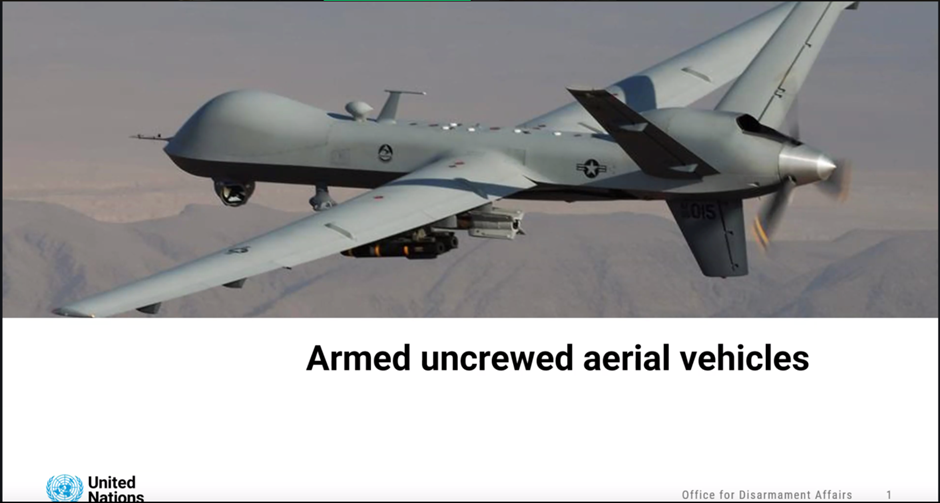
The second topic discussed was the proliferation and use of armed uncrewed aerial vehicles (UAVs or drones for short), emphasizing their growing deployment in large-scale attacks due to affordability and accessibility. Participants were briefed on the threats posed by non-State armed groups’ use of UAVs, often in violation of International Humanitarian Law, with examples from a UNIDIR study on trends in Africa. Discussions covered existing international control frameworks such as the Arms Trade Treaty and UN Security Council resolution 1540, as well as the challenges raised by the regulation of dual-use technologies, and the importance of autonomy of Member States. Discussions noted that while UAVs can serve as valuable tools for legitimate defense, their misuse by Non State Actor Groups s raises serious concerns. The exchanges included calls for stronger due diligence, drone industry engagement, and domestication of international instruments to curb illicit proliferation.
The third topic addressed the increasing use of artificial intelligence (AI) in the military domain and its implications for international peace and security. Participants reflected on the adoption of the 2024 UN General Assembly resolution on the topic, the first of its kind, as well as other multilateral efforts in this area such as the convening of two global summits on AI Action and AI Safety, respectively. These developments underscore the urgency of taking action to support the responsible use of AI. Kenya’s national expert reflected on how AI is reshaping warfare through enhanced intelligence surveillance, autonomous systems, improved situational awareness, and stronger cyber defense capabilities.
While recognizing the benefits of these technological advancements, participants also acknowledged concerns about the ethical, legal, and strategic risks posed by military AI, particularly in the absence of robust international regulation. Increased international cooperation and capacity-building was highlighted in this context. The discussion also emphasized the importance of regional security coordination to prevent fragmentation and mitigate risks of an AI arms race. The continental AI strategy, which promotes collaboration between the African Union, Regional Economic Communities, and international partners to implement inclusive governance and regulatory frameworks addressing dual-use concerns (civilian and military) and safeguarding international humanitarian norms, was also raised.

The virtual regional briefing was born out of the observation that technology rapidly advances alongside its implications for international peace and security. Hence why, the Member States’ growing interest and sense of urgency in addressing matters like ICTs, armed uncrewed aerial vehicles, artificial intelligence and autonomy. The regional briefing for Africa was a platform to reflect on the latest developments in the fields of ICTs, armed uncrewed aerial vehicles and artificial intelligence and took stock of regional perspectives, developments, and concerns regarding the security implications of emerging technologies in Africa.
